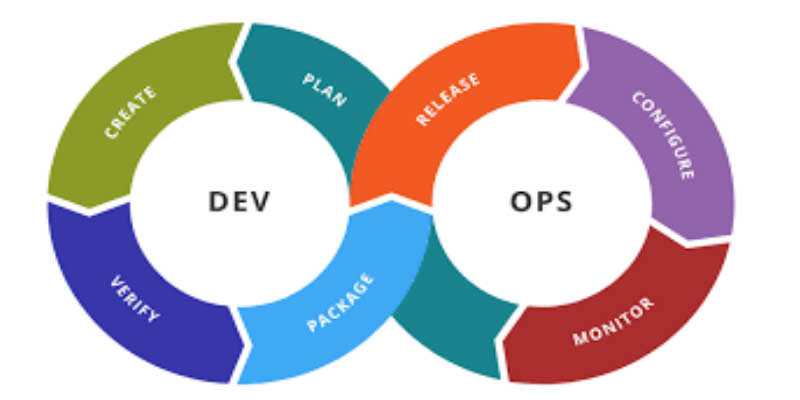- Irish Pakistani ICT Professional in Ireland
- info@ipip.ie
Why DevOps is important for any organisation?

How Artificial Intelligence is Changing Our Society – Research Paper
April 17, 2023
Digital Business Card: A Modern Analysis on its Effectiveness in a Digital Age
April 23, 2023
DevOps
DevOps is a software development methodology that applies teamwork, collaboration, and communication among development and operations teams to accomplish a reliable and fast-paced consistent software delivery process. DevOps has increased substantial growth in the last few years and is increasingly being implemented by all sizes of organizations. Main goal of DevOps methodology is to break down the barriers among the development and operations teams and to create a mindset, sense of accountability, and positive culture of cooperation and continuous improvement. To do this, a combination of tools, automation, and process enhancements is used.
A major advantage of DevOps is that software solutions and upgrade can be released more quickly and often to the market. DevOps enables more frequent software releases that are of higher quality and more suited to user needs by combining the development and operations processes. Automation and continuous integration and delivery (CI/CD) pipelines are
emphasized to achieve this. Another benefit of DevOps is enhanced team communication and collaboration.
DevOps helps to bridge the gap between developers and operations employees by encouraging an open and transparent culture. This can lead to improved collaboration and a shared sense of
ownership and responsibility for the success of software initiatives. But there are some challenges with DevOps operation. Important changes to business culture, process, operations, and tooling are necessary for DevOps implementation, and these adjustments can be challenging with in the organization. A high level of technical expertise and a willingness to adopt new tools and methods of operation are also necessary.
In terms of time, resources, and training, DevOps can also need a bigger commitment. DevOps-adopting businesses could require upgrading and adding new infrastructure and technologies, as well as retrain workers on the latest procedures and techniques. In bigger perspective, DevOps offers multiple advantages in terms of quicker time to market and improved teamwork and collaboration, it is not a difficult task and does not require a massive financial expenditure from the organization.
DevOps is an important element for achieving quicker, more reliable software delivery process for those organizations that are prepared to make the necessary improvements.
GitOps
GitOps is a method to software delivery that focuses version control and combination using Git tool. It contains using Git as a centre point for both infrastructure and application code and leveraging Git’s branching and merging capabilities to manage changes and deployments. With GitOps, developers can manage infrastructure as code (IaC) and application code in a single Git repository, making it easier to track changes, collaborate, and maintain consistency across different environments. By using Git to manage deployments, organizations can ensure that all changes are reviewed, tested, and audited before they are released to production. This approach helps to reduce the risk of errors, breakdown and improve the reliability and security of software deployments.
DevSecOps
DevSecOps is a method of software development that incorporates security procedures into the DevOps procedure. To guarantee that security is included in every phase of the software development lifecycle, teamwork between the development, security, and operations teams is required. DevSecOps attempts to prevent security vulnerabilities and lessen the risk of data breaches and other security incidents by integrating security early in the development process. To preserve security throughout the software development process, this strategy emphasizes the value of automation, continuous testing, and continuous integration and delivery.
MLOps
Machine Learning Operations (MLOps) is a technique and process for managing the end-toend machine learning lifecycle, from data preparation to model development/deployment and maintenance. The creation and deployment of machine learning models are planned to be streamlined using a combination of software engineering, DevOps, and machine learning methods. To make machine learning models accurate, dependable, and scalable, MLOps automates the training, deployment, monitoring, and maintenance processes. Organizations may decrease the risk of errors, ML model failure, data inaccuracy and breaches, speed up time to market, and enhance the efficiency and dependability of their machine learning initiatives by utilizing MLOps.
AIOps
Artificial Intelligence for IT Operations (AIOps) is a technique and process for managing and improving IT operations using machine learning and other AI tools. Big data, analytics, and automation are used in AIOps to improve the effectiveness and efficiency of IT operations. This approach aims to improve incident management, problem resolution, and capacity planning by providing insights into the behavior of IT systems and applications. To find patterns, anomalies, and correlations, AIOps systems may analyze massive amounts of data from numerous sources, including log files, metrics, and events. AIOps can automate common IT processes, decrease manual involvement, and boost overall operational efficiency by utilizing AI.




